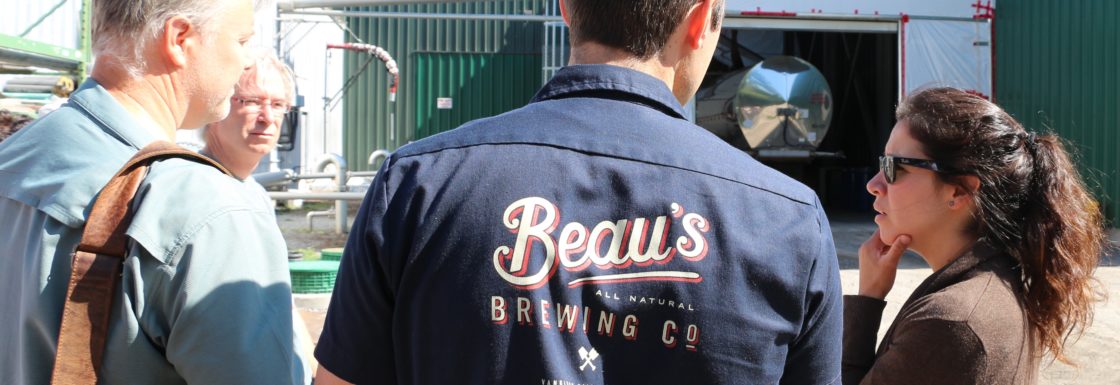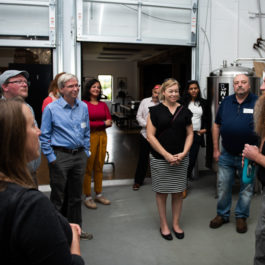Enviro-Stewards & Provision Coalition: Preventing Manufacturing Food Loss

Projects Sponsor
Waste not, want not: Provision Coalition’s Manufacturing Food Loss and Waste Prevention Project
It is a startling fact that one third of all the food produced on Earth is wasted. In Canada an estimated 43% of that is lost during processing and manufacturing. While it may be a comforting thing to do, diverting this waste from landfills to compost is not the solution. Many jurisdictions are implementing landfill bans to keep food waste from landfills, but even if they succeed in diverting 100% of that waste, one third of all the food on earth would still be wasted. That food loss would still be equivalent to the third largest GHG emitting country on the planet (after China and the USA), and the Canadian economy would continue to lose $49 billion per year associated with the value of that food. That’s a lot of money and energy expended for nothing, something the planet can ill-afford.
In other words, an ounce of waste prevention is worth tens of thousands of pounds of food waste pounding the pavement on its way to some place it was never meant to be.
Most processing and manufacturing facilities assume that if they are diverting their waste from landfills they are managing their processes efficiently. After all, it’s not like food is going in the garbage, but wherever the food goes after dodging the landfill, it is losing much of its value.
That’s the problem the partnership between Enviro-Stewards Inc. and Provision Coalition set out to address. They are educating companies about what their food waste is actually costing their bottom-line, and the environment, and Enviro-Stewards conducts on-site food loss and waste prevention assessments at participating food and beverage facilities across Canada using the Food Loss and Waste Toolkit they co-developed with Provision Coalition as a compass. The toolkit calculates the embedded greenhouse gas and meal equivalent savings associated with the conservation measures offered, providing manufacturers with the necessary business case to make change as well as tangible solutions to the problem. The scope allows for the identification and economic justification of three practical food waste reduction opportunities at each facility.
Throughout the project, they worked with 50 food and beverage manufacturers across Canada to identify and implement food loss and waste prevention opportunities with excellent, quantifiable results. Based on the results to date, the 50 assessments across Canada are projected to collectively identify practical measures to annually save $11,400,000 of additional profit, 9,300,000 kg of food, 32,600 tonnes of embedded GHG, and 15,400,000 meals.
That’s a success we can all dine out on, without scraping 43% of the meal into a bin.














